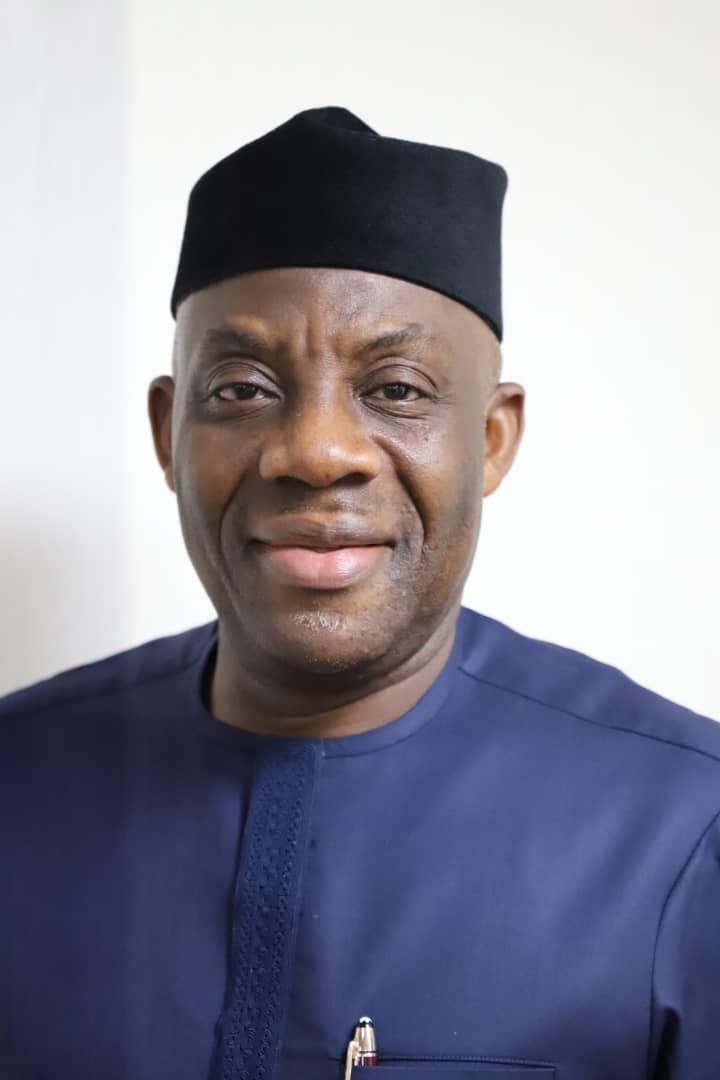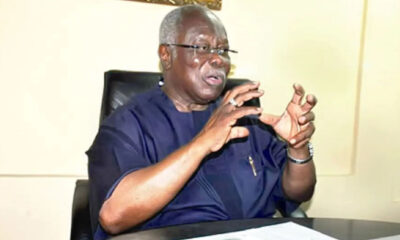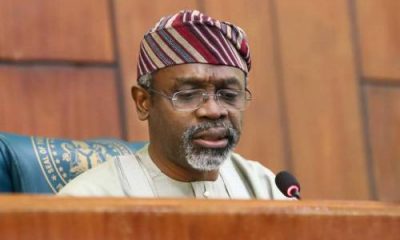Health
Kano research centre moves to end medical tourism among Nigerians, begins clinical services

Kano research centre moves to end medical tourism among Nigerians, begins clinical services
Kano State Independent Research Center Trust (KIRCT), Thursday, commenced its clinical services to the public, pledging to discourage medical tourism among Nigerians by offering healthcare services of international level.
The Research Trust Center, established by Pfizer for Kano State government a decade ago, was set up to conduct biomedical and healthcare researches on communicable and non- communicable diseases.
Speaking at the occasion, the Chief Medical Director of the Trust,Jamil Ismail Ahmad observed that Nigeria was losing about 2 billion US dollars yearly to medical tourism, assuring, however, that their facility would bridge the gap by providing clinical services that would render such trips unattractive to Nigerians seeking healthcare.
“Some studies have shown that Nigeria spends about 1.5 to 2 US billion dollars every year on medical tourism- seeking healthcare especially for heart diseases, for kidney diseases, for cancer and also for spine diseases among others, ” said Ahmad.
He admitted that the quest for medical care abroad was being encouraged by the daring challenges in Nigeria’s healthcare system and hospital setting, among which include the issue of lack of equipment and the flight of doctors and specialists to other countries.
READ ALSO:
-
Tension as gunshots rock 2 Jewish schools in Canada
-
(BREAKING) Kogi guber poll : Military arrests Navy Commander, 10 other personnel
-
Association of married women that share young boys among themselves exist in VGC – Slayqueen
“Because of that, we felt that this is an opportunity. Instead of our people leaving here to another country- pay for visa, pay for flight ticket, pay for accommodation and pay for treatment, you can come comfortably here, in the vicinity of your immediate family and culture and receive the same care that you need to get well, without stepping outside this country” he stated.
According to him, in the first year, their facility would provide all the general healthcare services at the highest quality level, adding that by the second year, they will commence intervention for heart and kidney diseases among others.
He was optimistic that by the second year, they should be able compete well with all other countries and international hospitals that are providing healthcare services at the highest level.
In his remarks, the Emir of Gaya, represented by District Head of Dawaki Kudu, Jafaru Usman Mohammed appreciated the Trust for its numerous contributions to healthcare delivery in the state, urging them to sustain the tempo.
Kano research centre moves to end medical tourism among Nigerians, begins clinical services
Health
Foreigners now visit Nigeria for plastic surgery, others – Minister

Foreigners now visit Nigeria for plastic surgery, others – Minister
Nigeria’s healthcare is no longer in crisis, Minister of State for Health, Dr Tunji Alausa, has said.
He said citizens of other countries in Asia, Europe and South America were beginning to visit Nigeria for medical treatment, especially in plastic surgery.
He spoke in an interview on Arise TV, maintaining that Nigeria now has reversed medical tourism.
“Today, we have a reversed medical tourism. We no longer have a japa syndrome in the healthcare system.
People are coming from India, South America and Europe for medical treatment in Nigeria, especially in the surgical area.”
He claimed that with improvements in the healthcare system, the country was witnessing a reversal of the ‘japa syndrome,’ suggesting that medical personnel were returning home from abroad.
According to him, the proliferation of aesthetic hospitals, numbering close to 900 across Nigeria, also contributes to attracting patients seeking services such as plastic surgery.
“Today, we have almost 900 aesthetic hospitals around Nigeria. People are coming to get plastic surgery,’’ he said.
He noted that the administration’s commitment to prioritising public health led to positive changes in the healthcare sector.
“We have a President now that believes a healthy nation is the core to harnessing our biggest asset, which is our human capital,” Alausa said.
He added that the government allocated dedicated funds and initiated collaborations to enhance primary healthcare services and expand health insurance coverage.
“The President has mandated us to increase coverage from about seven million to about 50 million people to have health insurance in the next two to three years.
“This marks the highest budget allocation for the health sector in almost 24 years,” he said.
Health
Measles outbreak kills 42 in northern Nigerian state

Measles outbreak kills 42 in northern Nigerian state
The Adamawa State Government confirmed on Friday evening that 42 individuals have tragically succumbed to a measles outbreak.
Felix Tangwame, the Commissioner of Health and Human Services, disclosed this somber update, specifying that the fatalities occurred in Mubi and Gombi local government areas.
Addressing reporters following a state executive council meeting at the Government House, Yola, Tangwame detailed the extent of the outbreak. He revealed that eight wards in Mubi and seven wards in Gombi were affected by the measles outbreak, resulting in the loss of 42 lives out of 131 and 177 affected individuals, respectively, in the mentioned LGAs.
READ ALSO:
- Delta lady dies after 2 friends pushed her into pot of boiling pepper
- My wife slept with our plumber, connived to dupe me — Man tells court
- Aregbesola no longer member of APC, says ex-Osun commissioner
In response to the crisis, all local government areas in the state have been placed on red alert as a precautionary measure to prevent further spread.
Tangwame emphasized the promptness of his ministry’s response upon receiving reports of the outbreak, attributing their ability to manage the situation effectively to swift action. He assured that both the government and development partners are actively engaged in addressing the situation.
Measles outbreak kills 42 in northern Nigerian state
Health
Nido infant milk neither registered nor sold in Nigeria – NAFDAC

Nido infant milk neither registered nor sold in Nigeria – NAFDAC
The National Agency for Food and Drug Administration and Control, NAFDAC, on Sunday declared that the Nido infant milk formula, alleged to contain sugar or honey, was not registered and sold in Nigeria.
The director-general of NAFDAC, Mojisola Adeyeye, made this known in a statement obtained by the News Agency of Nigeria in Lagos.
Mr Adeyeye said the attention of NAFDAC’s Management was drawn to an online publication alleging that one of the worlds largest consumer goods company added sugar and honey to infant milk and cereal products sold in many poorer countries, contrary to international guidelines aimed at preventing obesity and chronic diseases.
It stated that the online publication of April 17, 2024 was being circulated widely to the general public.
Mr Adeyeye said the report further stated that samples of baby food products sold in Asia, Africa and Latin America were tested and results revealed that sugar and honey were added in form of sucrose in samples of Nido and Cerelac.
“The Management of NAFDAC wishes to use this medium to reassure the public that the Agency exercises due regulatory diligence in the registration of infant and young children foods distributed and used in Nigeria.
“This is in line with relevant Codex Alimentarius international food standards (Codex) and more specifically, Nigerian Industrial Standards (NIS).
READ ALSO:
- I will not govern Rivers on my knees – Gov Fubara sends warning to political detractors
- Oyo local govt poll: PDP wins all chairmanship seats
- NDLEA intercepts cakes laced with drugs
“This is applicable to all categories of infant and young children foods distributed by manufacturers, importers, and marketers of infant and young children foods operating within Nigeria.
“Regarding the mention of Nido follow-up milk formula in the publication, NAFDAC wishes to state that the product is not registered in Nigeria, is not known to the Agency and is not in circulation in Nigeria,” she stated.
According to Ms Adeyeye, the range of Nestle Cerelac infant cereals distributed in Nigeria are duly registered with NAFDAC in line with the Nigerian Industrial Standard for Foods for Infants and Young Children.
“Processed Cereal Based foods (NIS 256:2010) and the Codex Standard for Processed Cereal-based Foods for Infants and Young Children (CXS 74-1981 was adopted in 1981, revised in 2006, amended in 2017, 2019, and 2023), as well as the applicable NAFDAC regulations for compliance with safety, quality, and labelling requirements.
“Adequate, optimal nutrition during infancy and early childhood is essential to ensure the growth, health, and development of children to their full potential.
“The Codex Alimentarius Commission (CAC) implements the Joint FAO/WHO Food Standards Programme, developing international food standards, guidelines, and codes of practice with the mandate to protect the health of consumers and ensure fair international food trade.
“Nigeria (NAFDAC) is an active participant at these international food standards setting arena to contribute Nigerians positions during food standards development,” it said.
According to the statement, the Agency, on March 22 held a stakeholders engagement with members of the Association of Infant Food Manufacturers and Marketers in Nigeria, AIFMN, anchored by the Food Safety and Applied Nutrition, FSAN, Directorate, to further drive home the importance and special place of infant and young child nutrition.
Adeyeye reassured the public that the Agency was fully alive to her responsibilities of assuring the safety, wholesomeness and quality of infant and young children foods offered for sale in Nigeria in compliance with the relevant standards and regulations.
Nido infant milk neither registered nor sold in Nigeria – NAFDAC
NAN
-

 Sports2 days ago
Sports2 days agoEPL: Man City go top after thrashing Fulham
-

 News2 days ago
News2 days agoRivers crisis may truncate Nigeria’s democracy, remember ‘Operation Wetie’ – Bode George warns
-

 News8 hours ago
News8 hours agoObasanjo to Gov Adeleke: Don’t leave dancing but ensure you work
-

 metro2 days ago
metro2 days agoWhy I claimed Ooni is my father – Man recants, apologises (+ VIDEO)
-

 News1 day ago
News1 day agoMinister inspects Nigeria-assembled CNG buses, says transport costs to drop
-

 News2 days ago
News2 days agoBritish High Commission shuns Prince Harry, Meghan ceremonies in Nigeria
-

 News1 day ago
News1 day agoAisha Yesufu under fire for celebrating naira fall
-

 News22 hours ago
News22 hours agoRivers: Wike’s loyalists protest in Port Harcourt against Fubara
















